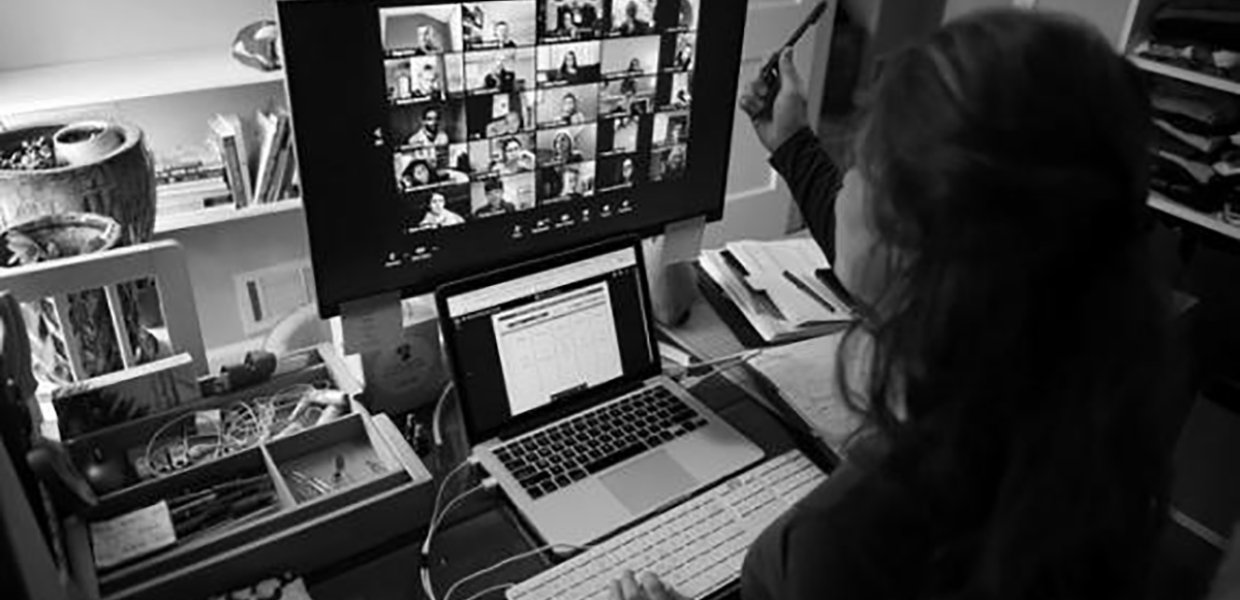Twenty-one journalists from around the nation joined the USC Center for Health Journalism earlier this month to take part in the 2020 Data Fellowship. The program, which ran from Nov. 30–Dec. 4, helps reporters gain investigative data skills through an intensive five-day series of workshops, followed by monthly trainings starting in January. It also provides six months of one-on-one mentoring by some of the best data journalists in the country and grants of $2,000-$10,000 to help underwrite reporting and data acquisition.
The Data Fellowship is designed for reporters who want to learn how to harness and analyze data to produce investigative and explanatory journalism that can shape decision-making, policy and legislation on health policy, health equity and child and family well-being. Each Fellow and his or her newsroom commit to a major investigative or explanatory project that is completed with help from the center’s data journalism mentors.
For their reporting projects, several Data Fellows will explore the impacts of the COVID-19 pandemic on various high-risk populations, such as farmworkers, residents of dense urban neighborhoods, and young English-language learners. Other topics that the Fellows will explore include the impacts of hospital closures in rural Georgia and urban Philadelphia; mental and physical health challenges for youth who survive shootings in Chicago; adverse outcomes for children attending segregated schools in Virginia; and reasons for minimal progress preventing premature births.
“Reporters participating in the Data Fellowship will be equipped to perform an essential service — telling untold stories about health equity during the pandemic,” said Michelle Levander, founding director of the Center for Health Journalism. “They’ll learn to harness the power of data-informed reporting to assess how children and families are faring and how community health and health care systems are performing.”
The Fellowship is funded by generous grants from two of California’s leading health foundations, the California Health Care Foundation and The California Endowment (the center’s founding funder), and by the New York-based Doris Duke Charitable Foundation.
Highlights of the agenda include a conversation about assessing underfunded public health systems as we entered the pandemic; a panel of journalists discussing how they build their own datasets from scratch at a time when data on the pandemic is incomplete and inconsistent and a briefing on how to use data to report on health disparities in your community. We will discuss the perils of working with “noisy data,” the U.S. Census, data visualization and more.
This year, for the first time, the Center is offering three training tracks. Fellows in the most advanced training track will learn the R software environment for statistical computing and graphics.
In addition, Fellows will benefit from the expertise of six distinguished data journalists who will lead skills sessions during the training program and also serve as Senior Fellows. The Senior Fellows are: Christian McDonald, assistant professor of practice at the University of Texas at Austin; Cheryl Phillips, a journalism professor and founder of Big Local News at Stanford University; Eric Sagara, senior data journalist at Stanford’s Big Local News; Andrew Ba Tran, investigative data reporter for The Washington Post’s rapid response team; MaryJo Webster, data editor for the Minneapolis Star Tribune; and Aaron Williams, a freelance data journalist formerly with The Washington Post. Through the mentoring and reporting process, Senior Fellows help Fellows apply lessons learned during workshops into practice to produce a major project that can illuminate important issues for their communities.
Three California Data Fellows also will receive additional training on “engaged journalism” and engagement grants to help them connect with their audiences and communities in more intimate, meaningful and impactful ways as part of our ongoing commitment to advance and support “engaged journalism.”
Since 2005, the Center for Health Journalism has educated more than 1,000 journalists through our intimate in-person Fellowships, which focus on the craft and content of health journalism, with an emphasis on the relationship between health and place, health disparities and “impact reporting.” This year, our Data Fellowship will take place remotely through Zoom. Past Fellowship projects can be found here.
Here are the 2020 Data Fellows, with links to their profiles and project topics:
Kate Bradshaw, Embarcadero Media (Menlo Park, CA)
Lakeidra Chavis, The Trace (Chicago)
Lydia Chavez and Annika Hom, Mission Local (San Francisco)
Jen Christennsen, CNN (Atlanta)
Agnes Constante, NBC Asian American (freelance, Orange County)
Gabrielle Emanuel, WGBH (Boston)
Nina Feldman and Alan Yu, WHYY Philadelphia
Brooke Holland, Noozhawk (Santa Barbara, CA)
Sarah Jackson, EdCentral.com (freelance)
Sara Kassabian, The Oaklandside (freelance)
Rebecca Lindstrom-Baumann, WXIA (Atlanta)
Monica Lopez, Making Contact
Kate Martin, Carolina Public Press (Asheville, NC)
Claire Mitzel, The Roanoke Times
Lexis-Olivier Ray, L.A. Taco (freelance, Los Angeles)
Elise Reuter, MedCity News (San Diego)
Stacey Shepard, The Bakersfield Californian
David Wagner, Southern California Public Radio (Los Angeles)
Janine Zeitllin, USA Today Network Florida/News-Press/Naples Daily News
